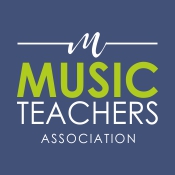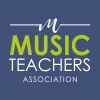Approaches to primary music curriculum
This panel session will be led by Kirsten Cunningham, local primary music lead, whose choir will also perform later in the afternoon. Additional panellists include Mimi Munro (National Music Advisor for Music, IAPS) and others tbc.
Engaging KS5 learners in challenging content
Led by James Manwaring and Jonnie Bridges, this session will include:
- Wider listening to expand your students’ knowledge
- Empowering students to find, evaluate and appreciate unfamiliar music
- Relating listening to composition
- Practical methods to improve outcomes for all KS5 students
Conducting workshop with a school ensemble
A practical session led by Eiron Bailey, Headteacher at Trinity Academy, looking at conducting technique and practice with a student instrumental ensemble. The session will include a review of basic conducting technique and live feedback.
How the key to whole school initiatives can be found in the music department
How many of your senior leaders had a great music education? Who really understands what you do and why you do it? Rather than recoiling at the sight of seemingly irrelevant whole school initiatives, become proactive, lead the way and build trust. Here’s a tool kit to help change perceptions and make your department the go-to place to see and hear best practice in action. Oodles of take-aways reflecting Rosenshine’s Principals, Dual Coding, Bloom’s Taxonomy, Oracy and Integrated Pedagogy.
How to get started with Cubase
Delivered by the Trinity Team and supported by corporate MTA member, Steinberg.
Building a co-curricular curriculum
When running a music department, it’s easy to fall into reactive rather than strategic thinking around the co-curricular: working with what you have rather than thinking about what it is you want! This session will look at the co-curricular curriculum of two schools and provide strategies for planning, launching, evolving, and evaluating an exciting and inclusive co-curricular timetable.
Delivered by Naomi Charatan and Liz Gleed (Cathedral Schools Trust), you will leave the session with ideas for planning, launching and quality-assuring a co-curricular curriculum.
Partnerships and choral commissioning
Join Alexander L’Estrange, Kirsty Barry, and Catherine Barker to learn about commissioning new choral works, including demonstrations on delivery methods and music booklets to take away.
Introducing the Musical Literacy Network and musical phonics project
Led by Dr James Olsen
Achieving a good grade in GCSE Composition: approaches with and without staff notation
Ed Watkins will present an approach to composition underpinned by learning through examples in a broadish range of music. This approach has been central to the music curriculum at the West London Free School, influenced by the model music curriculum and Ofsted research review, and led to exam success while nurturing pupil creativity.
Demystifying Music Technology: inclusive tools and confident teaching
This practical session will explore how free and accessible music technology tools can enhance traditional music teaching, support a wider range of learners, and build teacher confidence. Drawing on real-world experience across mainstream schools, special schools, alternative provision, and more, the session will share simple yet powerful ways to integrate music technology into everyday teaching — without needing to be an expert or have access to expensive software.
Key takeaways:
- A clear understanding of what music technology actually is and how it can support — not replace — traditional music teaching and learning
- Practical knowledge of free, accessible music production tools that can be used in the classroom straight away
- Strategies for making music technology inclusive and engaging for a wide range of learners, including those who may not connect with conventional approaches
- Reassurance and encouragement for teachers who may experience imposter syndrome when it comes to music tech
- Confidence-building through a hands-on demo that shows music tech is approachable, manageable, and creatively rewarding — even for beginners
Saturday 17th May
The ADHD Advantage: a choir designed for neurodiversity
With rising ADHD diagnoses, adaptive teaching is crucial in choir sessions, just as in classroom music. Karen Marshall, who leads two Key Stage 2 and two infant choirs across three schools with high percentages of neurodivergent children, will share her strategies. As one of her schools moves toward becoming an ADHD-friendly awarded school, she’ll discuss adaptations including movement-based songs, Makaton signing, Kodály musicianship with hand signs, and effective behaviour management techniques.
Kay takeaways: accessible repertoire, behaviour and adaptive teaching techniques
Success at KS4 for classroom musicians
A panel discussion led by James McEvoy-Stevenson (Music Advisor, United Learning)
You can sing, but can you swing?
Singing in jazz and pop styles for classically trained choirs and conductors, led by Alexander L’Estrange.
Coaching strand – where to start?
Perfect for new Department Heads as well as ECTs, and those looking for a fresh boost of inspiration into their work.
Please note, some sessions will start at 11.10am and some will start at 11.30am, to allow for staggered lunch servings.
Five a Day: simple ideas for classroom activities (11.10am)
In this practical session, Dr. Charles Béquignon-MacDougall, Mike Simpson, and Ollie Tunmer will demonstrate simple, engaging, and effective ways to integrate musical activities into everyday teaching. Drawing on the innovative Five a Day course from the MuseClass platform, they will share creative ideas that can be easily adapted for a range of age groups and settings. Whether you teach primary or secondary, you’ll come away with some quick and easy ideas to engage your pupils in starter activities, plenaries, singing assemblies, or rehearsals!
Key takeaways:
- Practical music integration in everyday teaching
- Activities for starters, plenaries, singing assemblies, and rehearsals – all adaptable for all age groups
- Engaging and inclusive ideas with minimal resources
- The MuseClass Primary advantage: 600+ songs, structured lessons, and full interactive teaching resources at an outstanding price
Developing musical understanding at KS3: balancing creativity and academic rigour (11.10am)
The term creativity is synonymous with things that are remarkable and original. That’s a tall order for experienced confident musicians, never mind students in the early days of acquiring and developing musical understanding. This session explores how well designed questioning and the active acquisition of knowledge through discovery, enable creativity and academic rigour to work hand in hand, without one being compromised for the sake of the other. Plenty of progressive ‘tried and tested’ take-aways to weave into your own practice.
Courageous conversations: mentoring student and early career music teachers (11.10am)
The relationship between mentor and mentee is crucial for establishing professional confidence in student and early career teachers as they take their first steps in becoming autonomous music teachers. Mentors need to develop the art of having courageous conversations as they support and guide these less experienced colleagues, balancing delivering targeted advice and help with opportunities for more independent thinking. Sometimes the conversations can be difficult, especially when things do not go to plan in the music classroom. This practical workshop explores how to use coaching skills to have courageous conversations when mentoring student and early career music teachers, with opportunities for delegates to role play scenarios as both mentor and mentee.
Coaching stream – curriculum planning (11.10am)
Join MTA President, Catherine Barker, and President-Elect, James Manwaring, for all things curriculum. Whether you’re in a single person department or leading music across a large network of schools, there will be useful and practical tips and solutions for all.
An exploration of Music with Mr Gray (11.30am)
An introduction to the Music with Mr Gray resource and how it can be implemented into your own curriculum. The resource includes lots of play alongs for typical primary school instruments including Ukulele, Recorder, Tuned percussion, Boomwhacker and Guitar.
Partnerships: developing best practice for partnerships across your school network (11.30am)
Join panellists from within the Cathedral Schools Trust, and further afield, to hear how effective partnerships can benefit your school.
DJ-ing in Schools (11.30am)
James Stevenson is a music teacher, electronic music producer and DJ. In this session, he shares his experience in integrating DJing in the musical culture of his school, and explains the fundamentals of the art form, with practical, interactive demonstrations.
Key takeaways: learn what equipment and software you need to introduce DJing to your department, learn the basics of DJing; at least enough to stay one step ahead of the students!
Teacher training in music in primary and secondary schools
This panel discussion will explore teacher training in Music in primary and secondary schools. The panel will examine the recent changes to the Initial Teacher Training and Early Career Framework published by government in January 2024 and explain the different kinds of training that student music teachers get when they train as primary and secondary music teachers on employment based and University based programmes. The panel will include ITT providers and trainers, student teachers and early career teachers, and school mentors sharing their experiences of the music teacher training process. This session is ideal for any colleague working with student teachers on school placement, and early career teachers working in their departments.
Building voices, building communities: cultivating outstanding school singing
Drawing on experience from a range of school settings and many years of training and supporting music teachers to enhance singing in their own schools, Don explores practical strategies to create a thriving singing culture. This session highlights the interplay between curricular and co-curricular music, approaches to embedding singing into the curriculum, and techniques for supporting adolescent vocal development. Learn how to build and sustain school choirs while working alongside school leadership to provide transformative singing opportunities for all pupils.
Jazz in the classroom
Led by Mark Armstrong, this session will explore creative ways to address fundamental aspects of music through the medium of jazz and jazz-based performance practice. The session will focus on internalising concepts of rhythm, melodic contour and harmony with scalable ideas for composition, performance and general musical understanding.
The Independent Sector music department: challenges and opportunities
A problem-sharing round-table session for those in the independent sector. Delegates are encouraged to submit their questions in advance, and will be able to discuss them with a team of experienced Directors of Music from the independent sector. Led by Nicky Bouckley and Tim Garrard.
Coaching stream – extra-curricular activities
Join James Manwaring for tips on building an extra-curricular provision in your schools. Once established, James will also share insights on maintaining its’ profile within the school community.
Sunday 18th May
Singing is life
Fifth Element will give a brief introduction to the world of Barbershop with this practical session including tag singing, and key tools to get the most out of a performance.
Key takeaways include:
- Gaining an understanding of the Barbershop Style
- Vocal Techniques and Tools
- Performance Skills
- Information and resources on the wider Barbershop community

